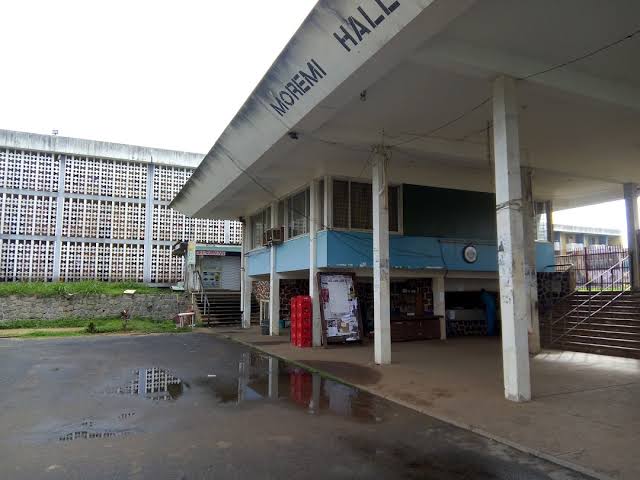We were in an editorial meeting for our news agency yesterday, Sunday, 16 November, when we received a report of the fire outbreak in Moremi Hall of Residence. We rushed to cover the incident, which was reportedly caused by the use of gas while cooking. By the time we arrived, the fire had already been extinguished, but the area was still crowded, making it difficult to assess the scene fully.
ICYMI: Gas Explosion Occurs in Moremi Hall, Fire Gets Contained
Upon our arrival, the Deputy Speaker, Hon. Nasir Hameed, alongside some other student leaders, addressed the occupants, urging them to remain calm, as the situation had been ‘settled.’ He informed them that their cooperation might still be needed and advised them to be truthful and avoid giving conflicting explanations to the press or to anyone who might contact them.
READ ALSO: Reporter’s Diary: Men at Library Entrance Now Request Money from Students
As campus journalists, we attempted to obtain direct explanations from the occupants, who were already recounting their experiences to the Deputy Speaker, to ensure accuracy and obtain an independent account. However, when we tried to record their statements, our efforts were abruptly obstructed and cut short when an unidentified individual, believed to be an ally of the Chairperson, raised an ‘alarm’ that ACJOAU members were present. This resulted in a very hostile reaction from both the Moremi Hall Chairperson, Ogunbayo Dorcas, and the other student representatives present. Further attempts to speak with the occupants or the hall executives were also blocked.
At several points, the Moremi Hall Chairperson personally instructed the occupants not to grant interviews, emphasising that the conversation happening in her presence was ‘private.’ She refused to answer any questions from us and openly stated that no ACJ member should approach her for information. Her posture and tone made it clear that she intended to control the flow of information and restrict journalists from accessing the individuals directly affected by the incident.
From our perspective, the experience was both demeaning and unsettling. Derogatory comments were directed towards us in ways that seemed intended to intimidate or diminish our morale, even though we were trying to fulfil our duties as journalists. For some of us, especially those covering such an incident for the first time, the hostility was surprising and discouraging. It was disheartening to realise that individuals who should be allies in promoting transparency and student safety appeared to view us as a threat.
The encounter highlighted a deeper challenge within campus journalism: navigating resistance from those who should ideally support the flow of accurate information. Despite the obstacles, the experience strengthened our resolve. Situations like this remind us why our work matters: to keep pursuing the truth, remain professional under pressure, and ensure that students receive factual, unbiased, and complete information.

